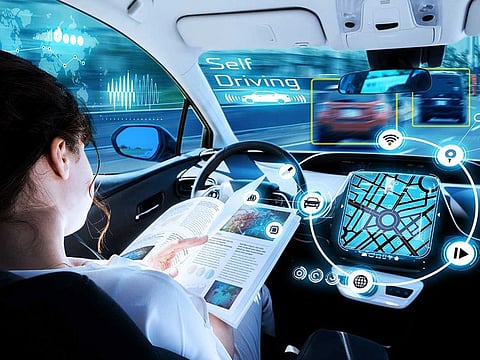Warning: You may not be able to drive a car after 2050!
Report says autonomous cars will be so advanced that humans needn’t be allowed to drive

We have come a long way from the times when autonomous cars were the stuff of science fiction. There are hundreds of road legal cars today that possess a level of autonomy, which could in theory allow them to operate without any human intervention at all, legislation permitting. Most new cars come equipped with the option of level 2 autonomy, and the industry is technically ready for level 3 once regulatory hurdles clear. However, despite pockets around the world pushing for level 4 technology, autonomous mobility has still not reached a level where it can be brought completely out of trial stages.
If details in a new report are to go by, this scenario is set to change significantly and rapidly over the next couple of decades, leading to human driving being outlawed in many parts of the world. The report, published by IDTechEx Mobility Research, suggests autonomous vehicles will become a massively disruptive technology which will grow rapidly at a rate of up to 47 per cent to transform the auto market over the next two decades. Given the current state of trials and existing plans for further expansion from key players of the industry, the report points to 2023 seeing the start of the AV revolution.
According to the research findings, autonomous driving technology will be so advanced by the 2040s that there will be no need for humans to be allowed to continue driving. The assumption is that if a technology is available that is proven to save lives, it would be criminally negligent to not adopt it and use it. The report also points out that technology has always caused changes to the laws on how we operate vehicles; as vehicles became faster, speed limits were introduced; when mobile phones emerged their use in vehicles had to be outlawed; so it is only natural that as autonomous drivers outperform humans, we are banned from driving altogether. Autonomous drivers are constantly aware, never distracted by mobile phones, other drivers, or other such things which can occupy a human’s attention, the report goes on to say. Moreover, constantly connected with 5G, these artificial drivers receive more information about their surroundings than human drivers could ever see or process.
It’s not all doom and gloom for driving enthusiasts though, as the study points out that although manual driving could become completely illegal on public roads in the interest of safety, this may still be relegated to a sport, reserved for racing and track days.
Sign up for the Daily Briefing
Get the latest news and updates straight to your inbox



